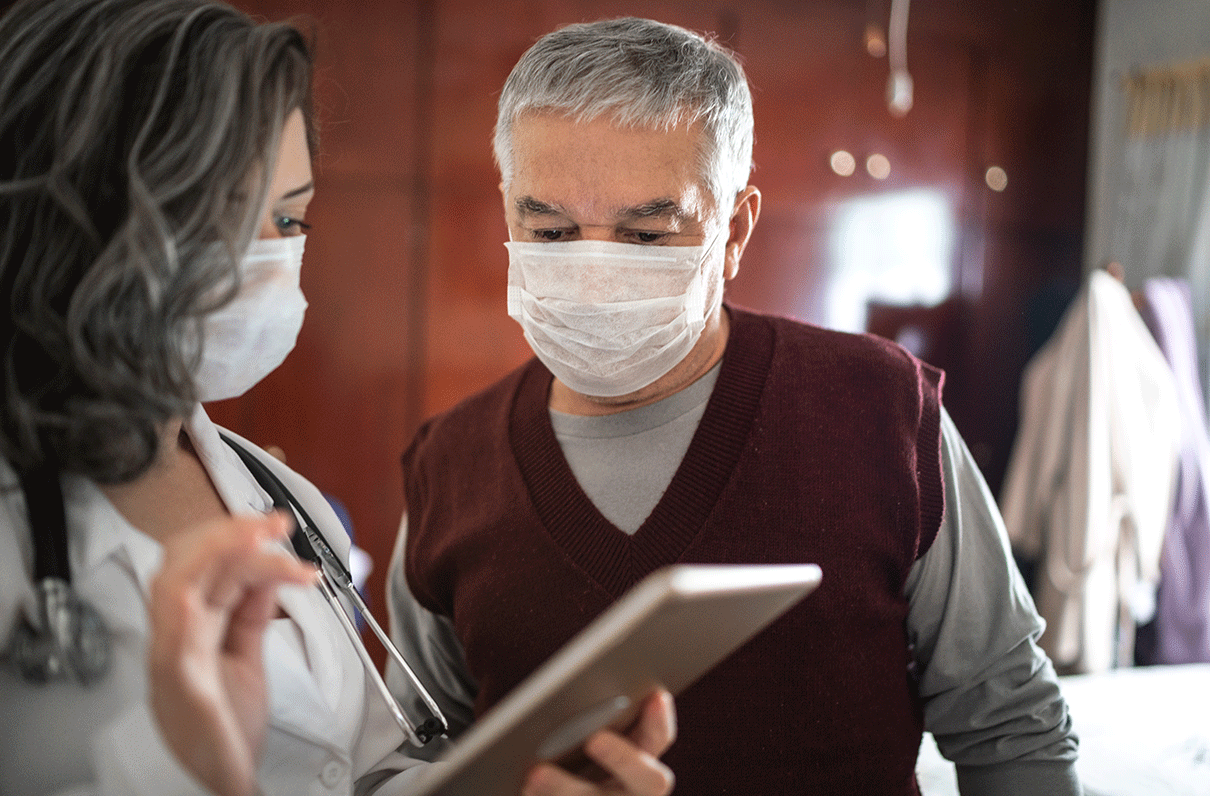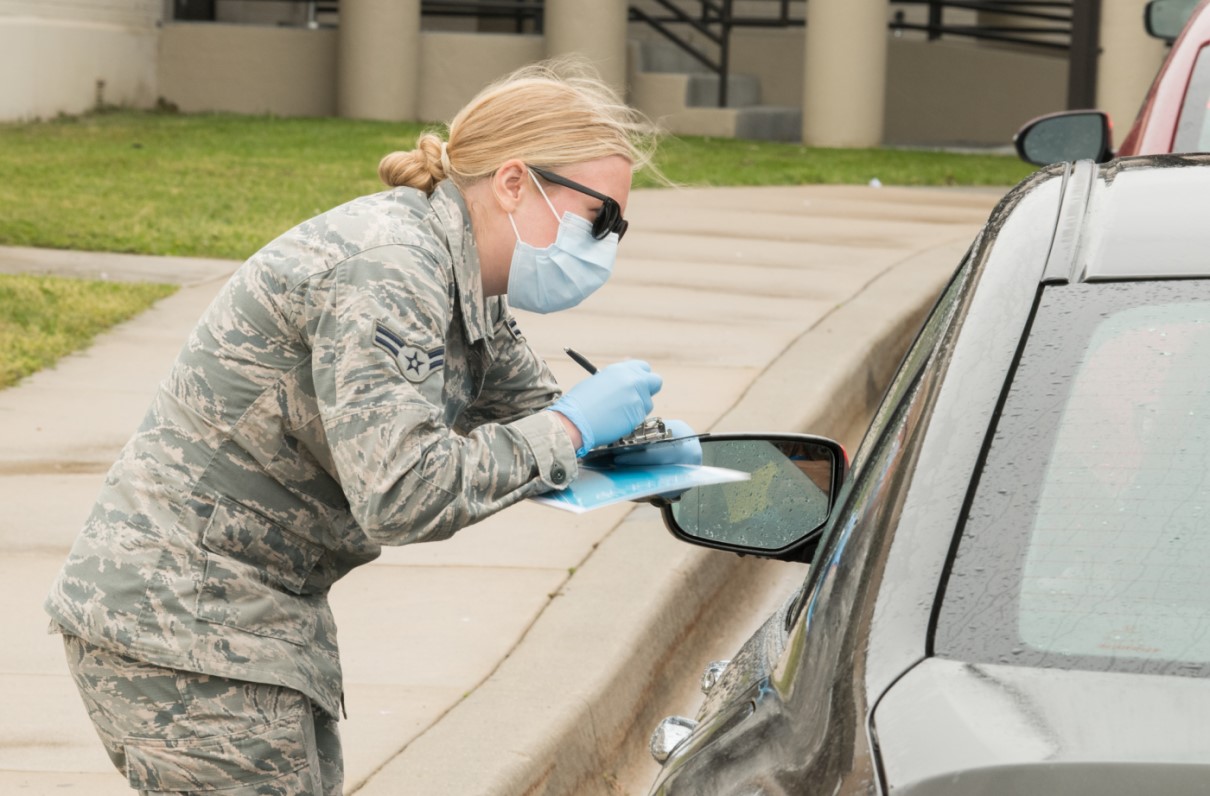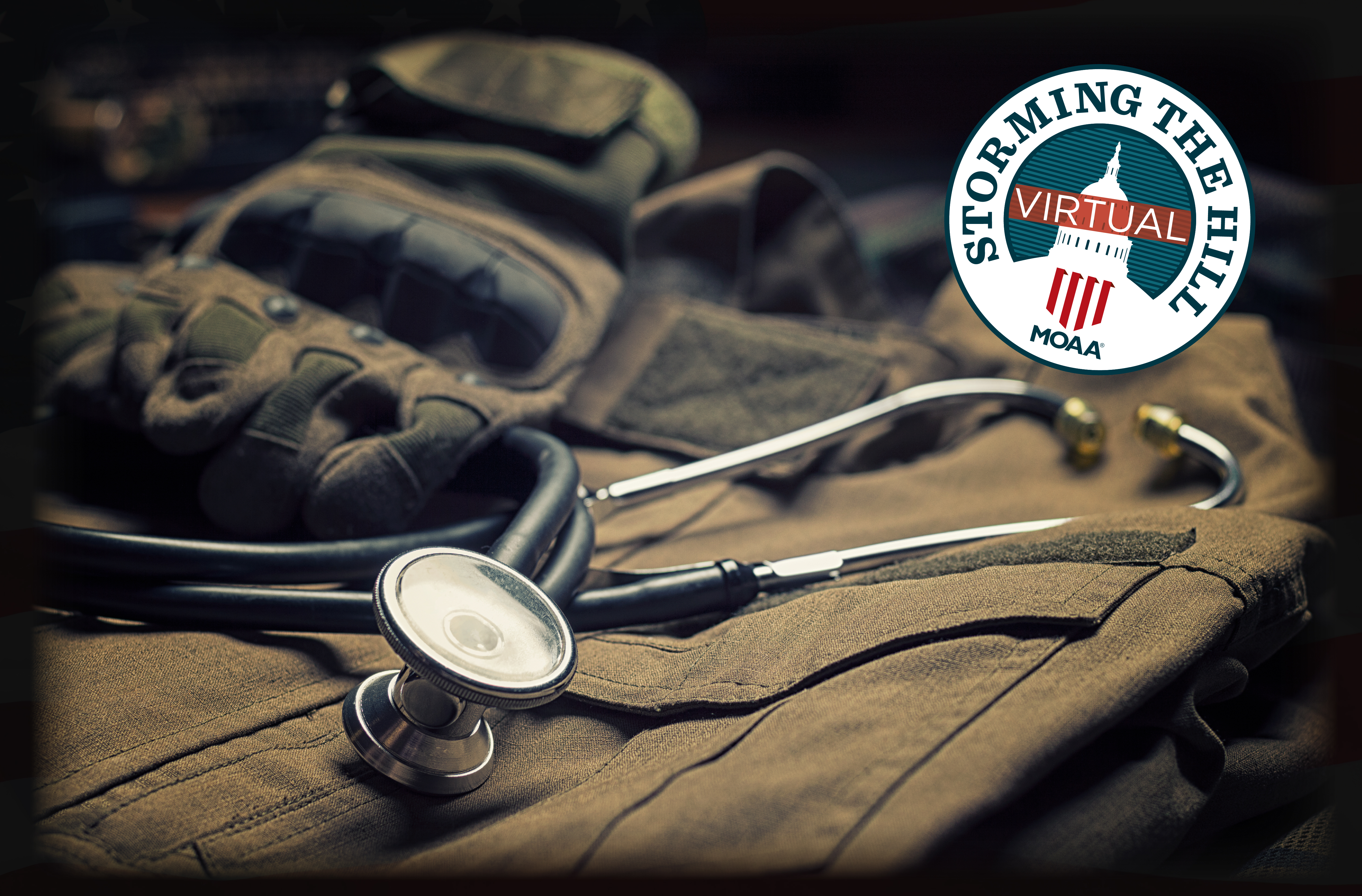Note from MOAA: Have you been impacted by the coronavirus pandemic, or the response? Share your story to help MOAA understand the needs of the uniformed services community.
Veterans, like most Americans, are heading into May having sheltered in place for almost two months since President Donald Trump declared a national emergency over the COVID-19 pandemic.
For many of us, life as we knew it seems a distant memory, and the days blend together with no clear sign as to what normal will look like on the other side.
May is also National Mental Health Month. Perhaps it’s a good time to reassess our own whole health – physical, mental and spiritual. It’s also an opportunity to check in on our friends who are veterans, to make sure they aren’t isolated and to let them know we are all together in this fight.
The VA has really stepped up in recent months preparing for COVID-19 by rapidly ramping up its telehealth services. VA wants veterans to know department officials care about their health and well-being. Some veterans may be experiencing a great deal of fear and anxiety about going to see their health care provider or even how to cope during these uncertain times.
[RELATED: ‘Fourth Mission’: How the VA Plans to Help All Americans in the Coronavirus Fight]
While many MOAA members and veterans have adjusted to stay-at-home orders and social distancing restrictions, others have shared experiences of anxiety, frustration, and stress.
Many cite pharmacy concerns that include drug shortages, difficulty obtaining refills, and high costs. Other complaints include limited or no access to military base services and financial strains due to unemployment or business closures, or living on a fixed income.
When MOAA asked for feedback on life during the pandemic, we received hundreds of responses. Here is a sampling of the concerns we received:
"Have refrained from leaving the house so far for last four weeks. Trying to quarantine as much as possible. We are both older and have underlying conditions. I am disappointed that my local VA clinic is closed and I have no [primary care physician] in case of emergency. My children have driven here to shop for us, but have not come into the house. Some friends have also picked up some things we needed." -- Centerville, Mass.
Clinic closures and telehealth services are alternatives, but not a substitute for one-on-one contact with medical providers. The inability to use gym equipment for so many weeks and jogging on paved streets, worsened my medical condition and mood. A few days ago, I began to have intrusive and persistent pain and thoughts …. My mental health counselor developed an illness and is out of commission for an undetermined period of time, so getting health care in itself adds stress to an already difficult moment in time. -- Fort Lauderdale, Fla.
I’m not able to communicate directly with my provider or schedule a telehealth appointment online via MyHealtheVet. VA’s response back was to tell me there are no available appointments. -- Washington, D.C.
Not all respondents were concerned, and shared comments like this one:
Outpatient procedure at VA clinic postponed indefinitely, no immediate health impact. VA routine office visit conducted by phone. Under a county and statewide stay-at-home order. …We’re fortunate. … Local community-based outpatient clinic is screening people before they enter the facility, they are conducting some visits by phone/video conference and prioritizing procedures and postponing where possible. I support those actions. -- Fort Smith, Mont.
Big Increase in Telehealth
According to VA officials, the agency has been preparing for the COVID-19 outbreak since January, when it “began tracking a pneumonia of unknown origin with 40 cases surfacing in China.”
Thanks to early prep work, VA rapidly started implementing the $17.2 billion funding from the Coronavirus Aid, Relief and Economic Security Act or CARES Act, when it was released in early April.
[RELATED: What You Need to Know About the CARES Act]
In an April 8 press release, VA Secretary Robert Wilkie stated, “Since the President signed the CARES Act, VA has been moving quickly to implement the President’s intent to hire new staff, take care of homeless veterans, use our cutting-edge telehealth technology to keep appointments, and to help state-run veterans homes.”
In weekly briefings to organizations like MOAA, Wilkie said he sees this telehealth phenomenon not only growing, but sees the crisis stressing VA’s health system “in a good way.” The rapid expansion of virtual services will serve as benchmarks for the future, especially for veterans in rural areas and tribal communities.
From March to April, VA went from delivering 45,000 telehealth appointments to over 154,000.
For mental health services, VA data indicates veterans are using an app called VA Video Connect to consult with their provider via their computer, tablet, or phone.
Some of my friends and family members using VA telehealth services have been impressed at how the technology works and the availability of services. In many cases, telehealth appointments for mental health services have been easier and quicker to access than in-person appointments.
According to VA, “in March, mental health providers completed more than 34,000 appointments with Veterans using VA Video Connect, an increase of 70% from the 20,000 appointments made in February, before the pandemic.”
Here’s VA’s breakdown of the increases:
- Telehealth group therapy conducted more than 2,700 visits in March, a jump of more than 200% from the prior month.
- Mental health care and consultation delivered by phone rose to more than 154,000 appointments in March, up 280% from the 40,000 appointments in February.
- Vet Centers across the nation held more than 47,000 virtual appointments in March, a 200% increase from February. These counseling sessions dealt with mental health issues.
MOAA is grateful for VA’s efforts to keep veterans safe, and we look forward to working with the department as it continues to expand services to meet the needs of veterans during the crisis.
Our association encourages our members and others to listen to this video message from Dr. Richard Stone, VA Health Affairs, Executive in Charge. Please answer his call to action and reach out to a few of your veteran friends. Check their mental health and wellbeing during this difficult time.
If you are a veteran in crisis — or you’re concerned about a veteran — free, confidential support is available 24/7. Call the Veterans Crisis Line at 1-800-273-8255 and Press 1, send a text message to 838255, or chat online.
Share Your Story
MOAA appreciates those of you who’ve shared your COVID-19 feedback. If you encounter problems related to COVID-19, please let us know using our reporting tool or tell us about your issue at legis@moaa.org.
Join MOAA Today
Not a member of MOAA? When you join MOAA, you become part of the strongest advocate for past and present members of the uniformed services, and their families.
Already a MOAA member? MOAA has hundreds of chapters around the country. Get involved in your community by finding the one closest to you and joining today!



